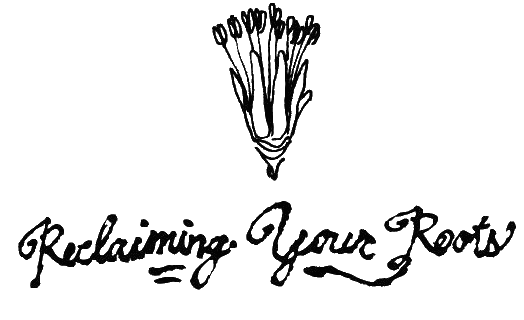Weedy Wonders: Chickweed
Spring and fall have always been traditional times of detoxifying the body and many of our spring and fall weeds can play an essential role in helping to gently assist our kidneys and liver in this process. All we need to do is eat them! Of all of these weeds, one of my favorites to eat is Chickweed. This tender green makes a great addition to any salad or pesto and has much medicine to offer us. In East TN, chickweed is just in its early growth stages in March, so you won't see its signature tiny white flowers. As spring progresses and the chickweed grows taller and blooms, feel free to continue munching. All of the aerial (above-ground) parts of this plant are tender and edible. If you are identifying it for the first time, I recommend consulting pictures and knowledgeable friends to make sure you have the right plant. There are some great pictures on this wild edibles page. I recommend it as a jumping off point.
Chickweed Stellaria media
Parts used: Aerial parts
Medicinal uses: The fresh tender greens of this plant, like the other weedy wonders, are filled with vitamins and minerals, including calcium, potassium, vit. C, and iron. Chickweed is best used fresh but can be juiced and frozen in ice cube trays for year-round use or made into a tincture. It’s considered a nourishing tonic and can help improve overall energy levels due to its high nutrient content. It’s also been shown to increase fat metabolism. Taken internally, it has mild diuretic and anti-inflammatory properties. Chickweed can be soothing for any internal irritation of the mucosal tissues (GI tract, respiratory, urinary tract, etc.) Externally, as a poultice or salve, it’s soothing for cuts, wounds, and other skin irritations, such as eczema.
How to use: I generally just recommend eating chickweed fresh in the spring and fall. It’s delicious in salads or as pesto. I also know folks who throw it in smoothies or juice with it. Chickweed does not dry well so it’s best to use fresh. For external use, it can be made into a poultice, infused oil, or salve and applied directly to the wound as needed. Chickweed has no known contraindications and is safe to use daily.

